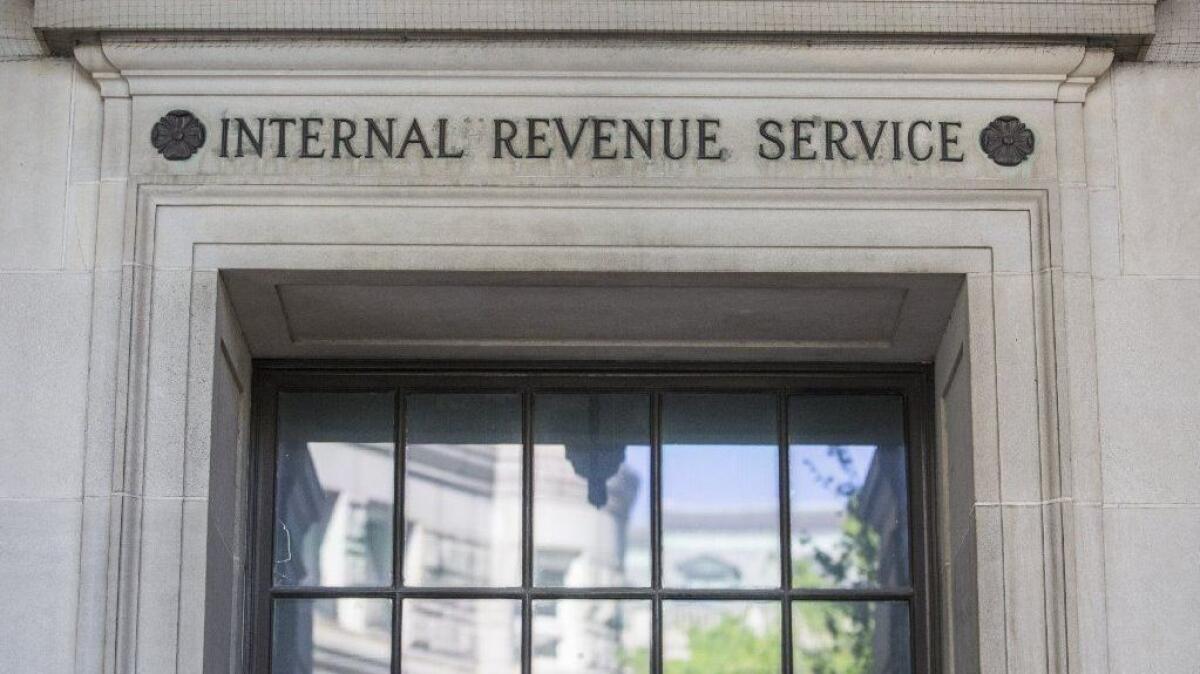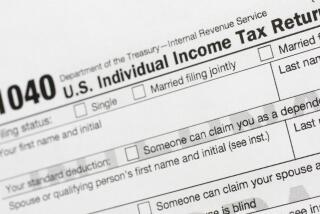Tax day 2019: So how is Trump’s tax cut working out for you?

The Trump administration observed tax day 2019 by touting the expected benefits of the big GOP tax bill passed in late 2017. For example, one release ran off a list of estimates about taxpayer savings, along with the increases in certain credits, deductions and write-offs.
But the spin is now competing with Americans’ actual experience. Monday was the deadline for individuals to file tax returns for 2018, the first year the tax cuts were in effect, so by the end of the day the typical American wage earner had a pretty good idea whether the new law lived up to the administration’s promises.
And unfortunately for President Trump, there were a host of factors tilting the playing field against the law, fairly or not. That’s particularly true for middle-class taxpayers, especially on the coasts.
That might explain why only 18% of the 1,001 registered voters surveyed by Hill-HarrisX late last week said they paid less taxes in 2018 than in 2017. Twice as many said their taxes hadn’t changed at all, and 32% said they paid more. In other words, 68% of those surveys said the well-hyped tax cuts didn’t help them, and may have made things worse.
Enter the Fray: First takes on the news of the minute »
Maybe the president can persuade these folks that, contrary to their own perceptions, the new law did great things for most Americans. Good luck with that.
In fairness, it’s really hard for people to make an apples-to-apples comparison. Few taxpayers, if any, calculated how much they would have owed in taxes had the law not gone into effect. Instead, voters simply compared how much they owed (or were owed) on their 2018 return to how much they paid or received as a refund last year.
Complicating matters is that the feds withheld less in taxes from the typical paycheck. In early 2018, the administration unilaterally changed the withholding tables to reflect the cuts in the new law. The result was a relatively small increase in the size of people’s paychecks, but a big reduction in the tax refund they could claim at year’s end (or in some cases, a jump in how much they owed).
Accountants would point out that these households’ overall tax bill almost certainly went down, and that overpaying the IRS for the sake of a big refund is a bad way to manage one’s finances. And they’d be right about those things — according to Tax Policy Center estimate in February, 80% of taxpayers owed less in 2018 than they would have if the Republican tax cuts hadn’t gone into effect. Nevertheless, the arrival of smaller refunds angered some taxpayers, even if their total tax payments over the course of the year went down.
Many residents of high-tax states on the coasts (hello, California!) ran into a different source of anxiety. In previous years, people in the middle to upper income brackets had been able to claim large itemized deductions by writing off their state income and property taxes. But the GOP tax bill capped those deductions at $10,000 while increasing the standard deduction, a trade-off that created winners (especially in low-tax states) and losers (especially here and in other deep-blue states). Tax-preparation software programs make the loss of deductions abundantly clear by providing summaries that compare the total deductions allowed in 2018 to the total from 2017.
One other X factor is the stock market. The sharp dip late in 2018 led a slew of mutual funds to make large capital gains payments. For investors with taxable accounts (that is, not IRAs or 401(k)s), those payments provided an unexpected surge in income — and income tax liability. That’s not the new law’s fault, of course. But people who find themselves paying several thousand dollars more to the IRS may not be so quick to praise the GOP’s tax cuts for keeping their bill lower than it might have been otherwise.
More to Read
A cure for the common opinion
Get thought-provoking perspectives with our weekly newsletter.
You may occasionally receive promotional content from the Los Angeles Times.







